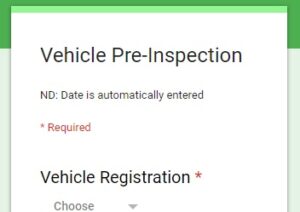Created 3/10/2019
Purpose
This policy sets out the framework for the application of Global Positioning System (GPS) and Vehicle Camera Surveillance in Company Vehicles.
Scope
This policy applies to all staff, employees and contractors who are approved to drive Company vehicles.
Purpose of this Policy
- Protects employees from accusations of misconduct or damage claims in some situations,
- monitoring utilisation of the vehicles,
- protect the employee against claims of misuse of resources or damage caused by the use of resources,
- deterring theft, locating a vehicle after theft and recovering a stolen vehicle,
- scheduling servicing of the vehicles.
Operation
- The GPS tracking system will record the start and shut off times of the vehicles.
- The camera will snapshot record the employee who is operating the vehicle.
- The GPS will be operational when the vehicle is running.
- Data is stored securely and can only accessed by the Director.
- The GPS tracking device does not track the employee when they are outside the vehicle or outside work hours.
- Tampering with any GPS equipment in the vehicle is prohibited and may subject the employee to disciplinary action.
- This policy and the GPS system are not intended to be punitive or used to monitor individual employees, although unsafe and unauthorized vehicle usage may lead to disciplinary action.
Legislation
This policy ensures compliance with the New South Wales, Workplace Surveillance Act 2005 (NSW)

